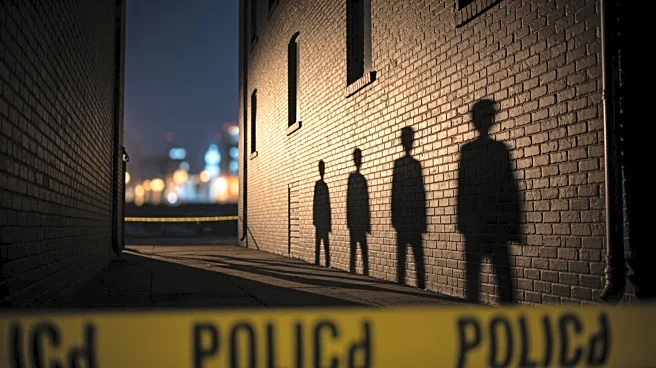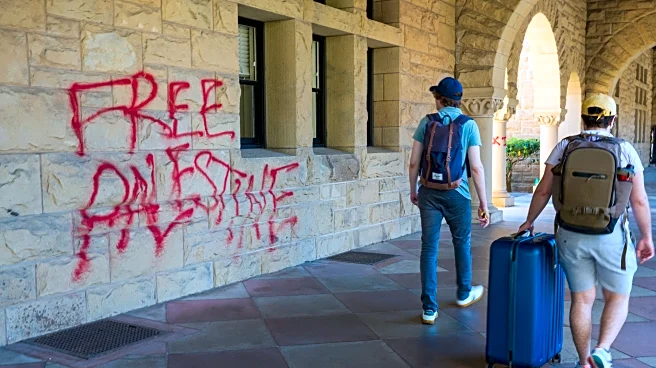What's Happening?
In Gaza, families are grappling with the disappearance of thousands of relatives amid ongoing conflict. The al-Najjar family, for instance, has been searching for their son Ahmad since he went missing during an Israeli military operation nearly two years ago. The conflict has left many families in a state of uncertainty, with some relatives believed to be buried under rubble or detained without notification. The Gaza Health Ministry reports that approximately 6,000 people are still unaccounted for, with the true number likely higher due to entire families being wiped out in bombings. The International Commission on Missing Persons and the International Committee of the Red Cross are involved in efforts to locate the missing, but face challenges such as restricted access to DNA testing supplies.
Why It's Important?
The ongoing search for missing persons in Gaza highlights the severe humanitarian crisis in the region. The conflict has not only resulted in significant loss of life but also left families in a state of limbo, unable to find closure. The situation underscores the broader implications of prolonged conflict, including the psychological toll on families and communities. The lack of resolution for missing persons cases also raises questions about accountability and the responsibilities of occupying powers under international law. The humanitarian and ethical dimensions of this crisis continue to draw international attention and calls for action.
What's Next?
Efforts to locate missing persons in Gaza are expected to continue, with international organizations advocating for greater access to resources and cooperation from Israeli authorities. The situation may prompt further discussions on the responsibilities of occupying powers and the need for comprehensive humanitarian interventions. Families in Gaza will likely continue to seek answers and justice for their missing loved ones, while international pressure may increase for a resolution to the broader conflict.
Beyond the Headlines
The crisis in Gaza also raises important questions about the long-term impact of conflict on civilian populations. The psychological trauma experienced by families searching for missing relatives can have lasting effects on mental health and community cohesion. Additionally, the situation highlights the challenges of conducting humanitarian work in conflict zones, where access to resources and cooperation from authorities can be limited. The ongoing conflict in Gaza serves as a stark reminder of the human cost of war and the urgent need for peaceful resolutions.









